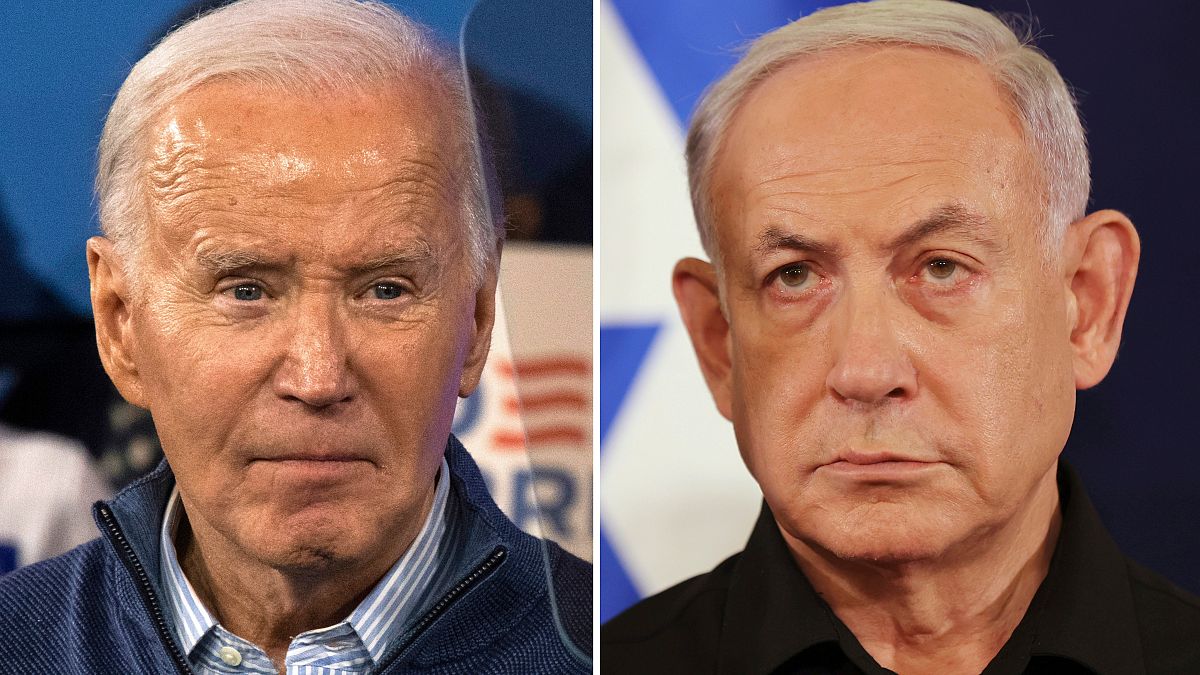US President Joe Biden has expressed deep concerns about a potential invasion of Rafah, a city in southern Gaza where over 1 million civilians from other areas of Gaza are currently seeking shelter. This issue was highlighted during a recent phone call between President Biden and Israeli Prime Minister Benjamin Netanyahu. The White House emphasized the US stance against a potential offensive on Rafah, particularly on humanitarian grounds. President Biden’s concerns were reiterated during the call, which took place just before a scheduled private meeting between President Biden and King Abdullah II of Jordan at the White House.
Prime Minister Netanyahu has been adamant about Israel’s stance on the ongoing conflict in Gaza, rejecting international pressure to cease hostilities. In a passionate speech marking the country’s Holocaust memorial day, Netanyahu emphasized Israel’s commitment to defending itself, even if it means standing alone. He made it clear that no international pressure or decisions would deter Israel from protecting its citizens and national interests. The situation intensified when Hamas launched rockets at Israeli troops near the border with Gaza, resulting in the death of four soldiers. In response, Israeli airstrikes on Rafah led to the tragic loss of 22 lives, including children and infants, as reported by a local hospital.
With tensions rising and the situation in Gaza becoming increasingly volatile, President Biden’s focus on preventing a potential invasion of Rafah is crucial. The presence of over 1 million civilians seeking refuge in the city highlights the urgent need for humanitarian considerations in any decision-making process. By expressing concerns about the situation in Rafah, the US is emphasizing the importance of protecting innocent lives and minimizing the impact of further violence on the civilian population. President Biden’s clear position on this issue underscores the US commitment to promoting peace and stability in the region, even in the midst of complex and challenging circumstances.
The phone call between President Biden and Prime Minister Netanyahu serves as a direct channel for diplomatic communication between the US and Israel. By openly discussing the concerns about Rafah and other critical issues related to the conflict in Gaza, both leaders are working towards finding constructive solutions to de-escalate tensions and prevent further loss of life. President Biden’s active engagement in addressing the situation demonstrates the US’s commitment to diplomatic efforts and conflict resolution. By recognizing the humanitarian implications of a potential invasion of Rafah, the US is taking a proactive stance in advocating for the protection of civilians and promoting peaceful resolutions to the ongoing conflict in Gaza. President Biden’s emphasis on these key issues during the call reflects the US’s dedication to upholding human rights and international law in challenging situations.
As the conflict in Gaza continues to escalate and casualties mount on both sides, the need for immediate action to prevent further violence and loss of life becomes increasingly urgent. President Biden’s focus on the situation in Rafah sends a strong message about the importance of prioritizing humanitarian considerations in times of crisis. By highlighting the risks associated with a potential invasion of Rafah, the US is calling for a reevaluation of military strategies to minimize civilian casualties and promote peaceful resolutions. President Biden’s stance on this issue reaffirms the US’s commitment to upholding human rights and international law, even in the face of complex geopolitical challenges. As efforts to find a diplomatic solution to the conflict in Gaza continue, President Biden’s leadership and commitment to promoting peace and stability in the region will be essential in shaping the future trajectory of the crisis.









